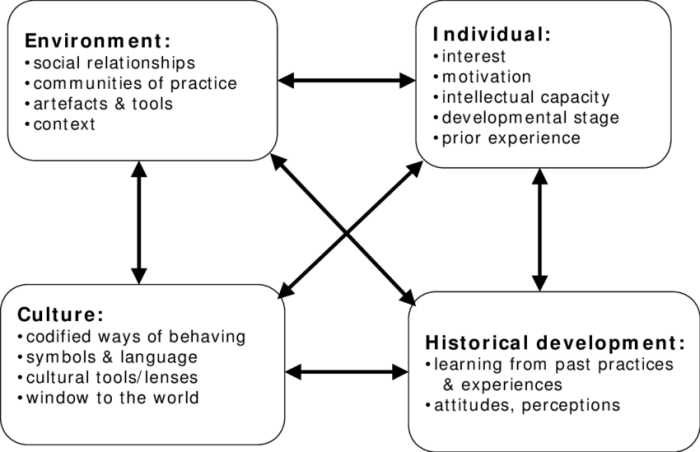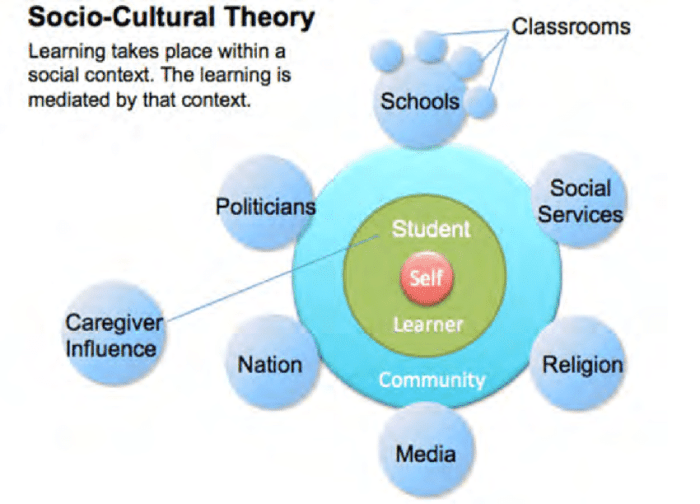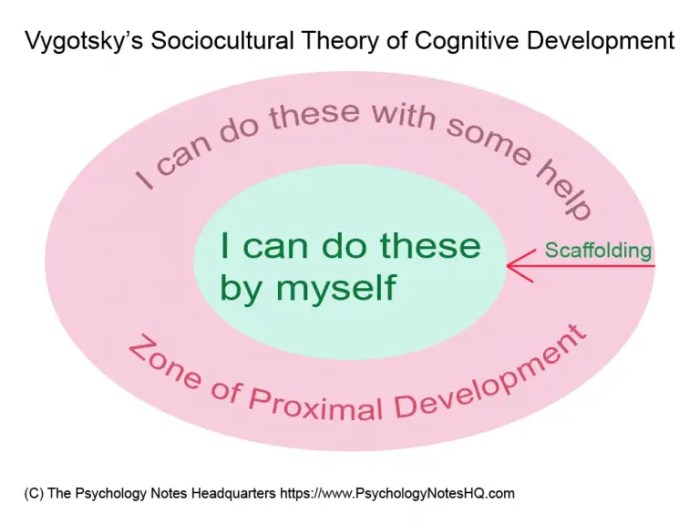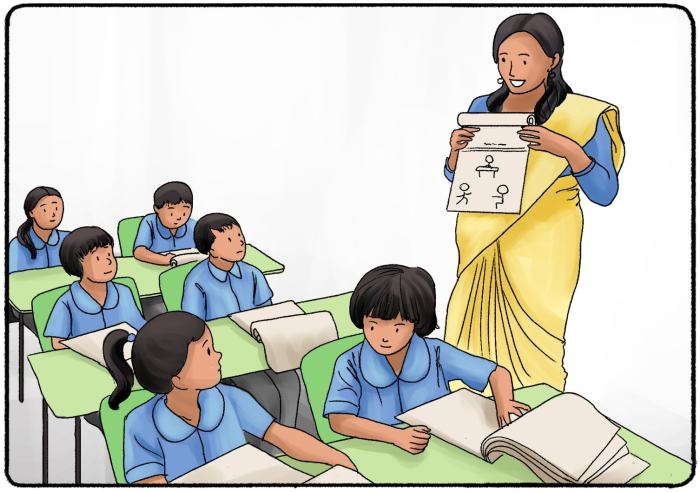As critics of sociocultural theory argue that it is too deterministic, this opening passage beckons readers into a world crafted with authoritative knowledge, ensuring a reading experience that is both absorbing and distinctly original.
Sociocultural theory has been a dominant force in the social sciences for decades, but it has not been without its critics. Critics argue that the theory is too deterministic, that it ignores individual differences, that it is difficult to apply in practice, that it is too subjective, and that it is not falsifiable.
Critics Argue Sociocultural Theory is Too Deterministic

Critics argue that sociocultural theory places too much emphasis on the influence of social and cultural factors, suggesting that it fails to adequately account for individual agency and the ability of individuals to resist or shape their social and cultural environment.
Individuals can resist or shape their social and cultural environment through various means, such as:
- Challenging social norms and expectations
- Creating new cultural practices and traditions
- Engaging in social movements and activism
This critique has implications for understanding human agency and responsibility, as it suggests that individuals are not simply passive recipients of social and cultural influences but rather have the capacity to actively shape their own lives and the world around them.
Critics Argue Sociocultural Theory Ignores Individual Differences

Critics argue that sociocultural theory fails to account for the unique experiences, perspectives, and motivations of individuals, suggesting that it overgeneralizes and overlooks the importance of individual factors in shaping behavior and outcomes.
Individual factors can shape behavior and outcomes in a variety of ways, including:
- Personality traits and dispositions
- Cognitive abilities and intelligence
- Life experiences and socialization
This critique has implications for understanding the role of personal agency in social and cultural contexts, as it suggests that individual factors play a significant role in shaping how individuals interact with and are influenced by their social and cultural environment.
Critics Argue Sociocultural Theory is Difficult to Apply in Practice

Critics argue that sociocultural theory is often difficult to apply in real-world settings, suggesting that its concepts are too abstract and difficult to operationalize and measure.
Challenges involved in operationalizing and measuring sociocultural concepts include:
- Defining and measuring cultural values and beliefs
- Assessing the impact of social norms and expectations
- Quantifying the influence of socialization processes
This critique has implications for the practical utility of sociocultural theory, as it suggests that it may be difficult to use the theory to make concrete predictions or develop effective interventions.
Critics Argue Sociocultural Theory is Too Subjective

Critics argue that sociocultural theory is too subjective and lacks scientific rigor, suggesting that its concepts are open to multiple interpretations and that different researchers may apply the theory in different ways.
Examples of how different researchers can interpret and apply sociocultural concepts differently include:
- Defining and measuring culture
- Assessing the role of social class in shaping behavior
- Interpreting the impact of socialization on personality development
This critique has implications for the reliability and validity of sociocultural research, as it suggests that findings may be inconsistent across studies and that it may be difficult to generalize results to different populations or contexts.
Critics Argue Sociocultural Theory is Not Falsifiable: Critics Of Sociocultural Theory Argue That It Is
Critics argue that sociocultural theory is not falsifiable and therefore lacks scientific merit, suggesting that its concepts are difficult to test and disprove.
Examples of how sociocultural concepts can be difficult to test and disprove include:
- Assessing the impact of culture on cognitive development
- Testing the hypothesis that social norms are internalized through socialization
- Determining the causal relationship between social class and educational attainment
This critique has implications for the scientific status of sociocultural theory, as it suggests that the theory may not be able to be tested empirically and that its claims may not be supported by evidence.
Essential FAQs
What is sociocultural theory?
Sociocultural theory is a theoretical framework that examines how social and cultural factors influence human behavior and development.
What are the main criticisms of sociocultural theory?
Critics argue that sociocultural theory is too deterministic, that it ignores individual differences, that it is difficult to apply in practice, that it is too subjective, and that it is not falsifiable.
How have these criticisms been addressed?
The criticisms of sociocultural theory have helped to refine the theory and make it more useful for understanding the complex relationship between individuals and their social and cultural context.